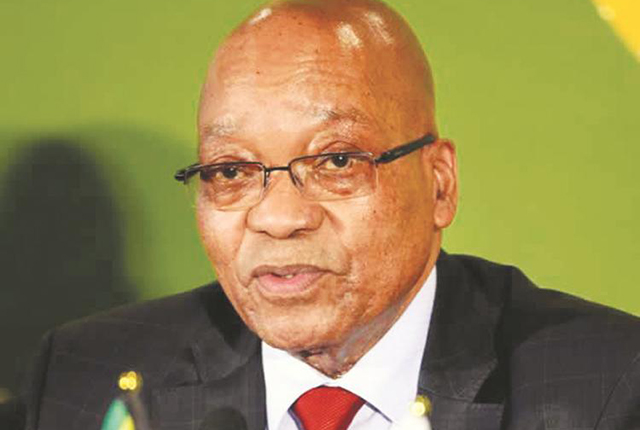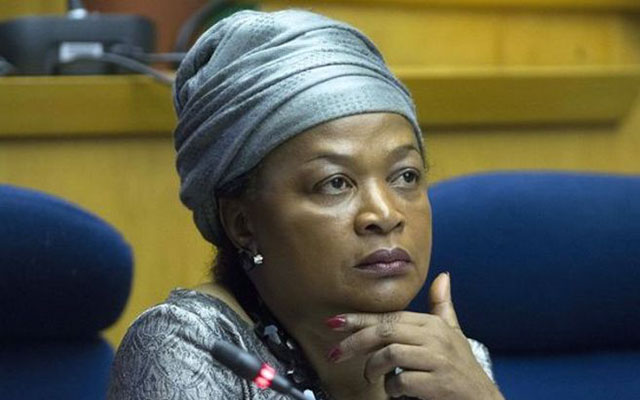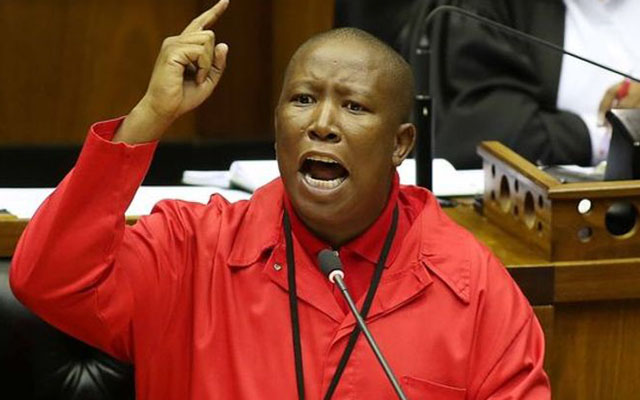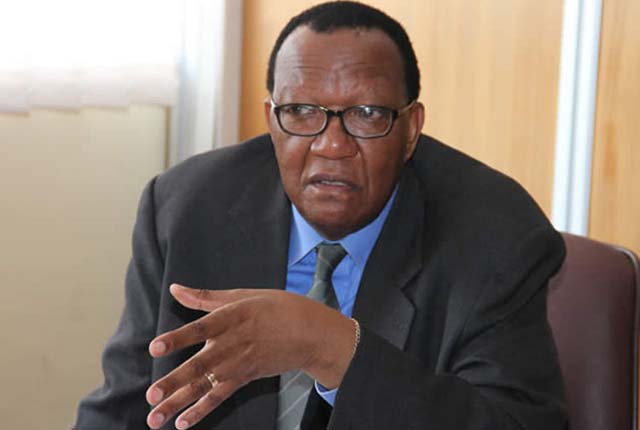ANC: Now the search for white man with conscience

Joram Nyathi Spectrum
THERE is no doubting that South Africa’s President Jacob Zuma is venal. There are just too many allegations of corruption or questionable behaviour being raised against him. Yet this week he survived an eighth no confidence vote against his presidency of South Africa.
It is self-evident from the vote, held as a secret ballot, in the National Assembly on Tuesday that Zuma’s ruling African National Congress is also divided.
The tally of votes shows that 26 members voted against their president, with bitter rivals of the governing ANC.
There were indications that the party might try a witch hunt on which ANC members of the National Assembly colluded with the opposition Economic Freedom Fighters and Democratic Alliance MPs.
That would be vindictive and to miss the vital importance of crucial events around the secret vote, which events the ANC should capitalise on to push its agenda of a “radical economic transformation”.
There is a tendency to be narrowly focused on Zuma and the ANC in discussing recent developments in South Africa, which masks serious structural problems in the economy, in particular the racial marginalisation of black South Africans.
What prompted the latest no confidence vote was especially the now notorious state capture report on the Gupta family.
So determined were Zuma’s rivals to get rid of him that the United Democratic Movement of Bantu Holomisa approached the Constitutional Court (itself a legacy of apartheid and no less captured) to find out if the no confidence vote could not be conducted in secret.
This was to obviate fears of intimidation of ANC members of parliament by their party. But even more important, there was at the core of that request, something that rarely animates ordinary political sensibility — a clean “conscience” for the voter rather than making a choice as informed by party policy or electoral success.
Head of the Constitutional Court Chief Justice Mogoeng Mogoeng ruled that the South African Constitution allowed Speaker of Parliament Baleka Mbete to cause a secret ballot on the no confidence motion.
She could use her discretion to determine that, to make “a rational” decision whether or not to have a secret ballot. The use of the word “rational” told everything short of an order.
The opposition in South Africa and business went for a kill. The line of attack now was whether or not Mbete herself could be trusted to make a rational decision regarding the national president and leader of her own party.
The choice was stark for Mbete, and the ANC should be very thankful she understood what was expected of her. Julius Malema and his EFF had threatened another court action if their wish for a “rational decision” by Mbete were not granted.
Which would have brought up an unnecessary complication as the vote proved. The opposition and its business partners and the rest lost the secret vote though only marginally, scoring 177 against the ANC’s 198.
Now, a conscience is defined as an in-built sense of what is right or wrong morally, or an ethical sense of what is good or bad.
We all want to be viewed as moral and ethical people and to be seen to be supporting these ethical and moral values when making choices or decisions.
Mbete was expected to make her decision on the nature of the ballot based on ethical and moral values, based on her conscience and what is best for South Africa rather than for her party, the ANC, which lately has had its image badly tainted because of the conduct of its leadership.
Conscience became the guiding principle in seeking to blackmail and arm twist attacking the ANC. It should therefore not have come as a surprise that Zuma survived the no confidence by the proverbial skin of his teeth.
DA and EFF MPs were going to vote with their conscience. Twenty-six ANC MPs chose conscience over party.
Again, the ANC as a party should be happy its MPs voted with their “conscience”, for this provides excellent ammunition in its fight for equity and economic justice.
Let us not miss the important point that the fight against the Guptas is simply about who is closest to the levers of political power to be able to influence economic policy for maximum benefit.
(Malema, as has become characteristic of late, comically misses the point about “foreign family” regarding the Guptas while ignoring the power of monopoly capital as a major force in economic policy formulation, hence the obsession by the privately-run South Reserve with the Rand exchange rate and inflation, never economic growth or employment creation.)
In her ruling as an individual, and the 26 MPs who voted with their conscience under secrecy, Mbete made the most courageous decision against her leader.
Together, however, by their vote made a statement which must forever haunt those who appealed to the conscience of the ANC to vote against its venal leader.
Here is the statement: Those MPs and Mbete must use this vote to appeal to the “conscience” of the architects of apartheid for equity and justice in the ownership of the South African economy.
Those with a conscience should not have a problem appreciating the egregious social and economic inequalities in South Africa, all deriving out of racial privilege and a legacy of colonial occupation.
The need for radical economic transformation couldn’t be more stark now in South Africa, where conscience should guide both political and economic actors, unless it can “rationally” be argued that whites don’t have to follow their conscience or that they don’t have a conscience!
South African poverty is black-faced. A few crude figures should help drive the point home.
In October last year, somebody remarked quaintly that it would take an ordinary shop floor worker at Checkers 290 years to earn the salary of Shoprite CEO Whitey (no pun) Basson.
The said ordinary worker was earning R2 700 per month. Whitey Basson’s salary had just been doubled to R100 million per year, fixed, not performance-based like that of the black labourer.
Show me your conscience white South Africa. And this is standard economic thuggery across industry, not an isolated experience. It’s all whitey! You think you are an educated black and a professional? Tell me a better story.
Surveys consistently show that black professionals’ salaries are far lower than those of whites, sometimes by a factor of six. One such survey showed that a black professional male gets just over R11 000, where his whitey male counterpart earns R30 000.
A whitey woman would get R17 000 plus while a black woman with a similar qualification and experience is given just over R2000.
Put crudely, it means a black professional man and his professional wife’s combine salaries yield them a mere R14 000. The white guy and his white wife with similar qualification and experience combine theirs to hit R50 000 the same month.
Who qualifies for a house in Saxonwold, where all estate agents are white?
Give me a better conscience South Africa. We know who owns the best land, the banks, the mines, factories and shops and run the JSE-listed firms and control the Reserve Bank.
Now that South Africans have been told to apply their conscience, they should press that line to prick the conscience of the world about the plight of blacks in Nelson Mandela’s rainbow nation.
The need for radical economic transformation is far from idle propaganda. Let’s see whites listening more to their conscience than their race on economic matters, access to justice.
The ANC can easily get rid of Jacob Zuma now, but still have a strong question to ask: where is the conscience of the white man?












Comments